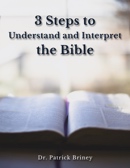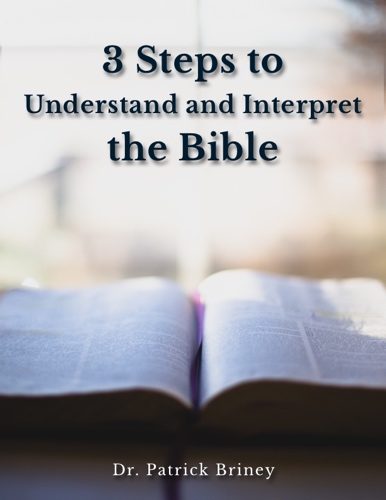One of the most important resources God has given to us as Christians to help us grow spiritually is the local, visible church. Ephesians 4:11 says that, to the church, God “gave some, apostles; and some, prophets; and some, evangelists; and some, pastors and teachers.”
This means that God has appointed some men to be spiritual leaders. We can find these leaders in local, visible churches. Why did God give us these leaders? Verse 12 cites three reasons: “for the perfecting of the saints, for the work of the ministry, [and] for the edifying of the body of Christ.”
The word perfecting does not mean to make flawless or without error. Rather, it means to make spiritually mature.
God gives us a local church to help us mature and grow spiritually. God designed the church to edify the saints. He did not build His church for just some believers. It is for all. All Christians should be members of a local church to experience the benefit of Christian fellowship and accountability in a church. Through this fellowship, there is encouragement, godly influence, example, and friendship.
Gpd wants the work of His ministry to be done through local churches. The great commission of sending missionaries to go into all the world to make disciples, and then to baptize those disciples and to teach them to observe all that Christ commands, should be done through the ministry of local, visible churches.
Obviously, Ephesians 4:11–12 depicts the local church as being very important. But before we continue to look at the importance of the church, it is necessary to define what the church is.
Prior to the early twentieth century, defining and describing the Bible’s definition of church would have been unnecessary. Christians knew that the word church in the Bible referred to local churches.
Today, however, there is a new doctrine of the church. It teaches that the church is a universal, invisible conglomeration of all the saints. In other words, the church of God is confused with the family of God. Some argue that the church includes all of the saints from the time of Adam, and others contend that it only includes those who have become Christians since the time of Christ’s birth.
Both views (that all Christians are the church, whether since the time of Adam or since the time of Christ) are wrong, and both views distort the truth of the church. Consequently, many Christians holding to the doctrine of the universal, invisible church do not value the local church as much as God wants them to. Also, their confusion about the church Jesus built hinders their understanding of Scripture when it speaks of the church.
Biblically speaking, a universal, invisible church is an impossibility. The word church is translated from the Greek word ecclesia. The word ecclesia is very narrow in its meaning and usage. Its meaning is restricted only to a local, visible gathering of people with a common cause or purpose. Thus, to say that a gathering of people can be both local and universal and both visible and invisible is ridiculous.
The confusion arises in applying the concept of a local church to the class of all people who are in the family of God. The church is not the family of God, and the family of God is not the church.
The family of God refers to all those who have been born again. This makes God their Father. All believers are children of God, and therefore, all believers are brethren to each other. Romans 8:15 says,
For ye have not received the spirit of bondage again to fear; but ye have received the Spirit of adoption, whereby we cry Abba, Father.
In fact, verse 14 tells us,
For as many as are led by the Spirit of God, they are the sons of God.
Verse 16 continues by saying,
The Spirit itself beareth witness with out spirit, that we are the children of God.
If all Christians are children of God, then He is our Father, and we are brethren. This situation is properly called the family of God.
Unfortunately, many Christians try to call the family of God the church of God. By doing so, they overlook many important truths about the local church and its application.
In future lessons, I will define several important concepts that will be very helpful in distinguishing between various classes of Christians. We will define the family of God, the church of God, the body of Christ, and the bride of Christ.



